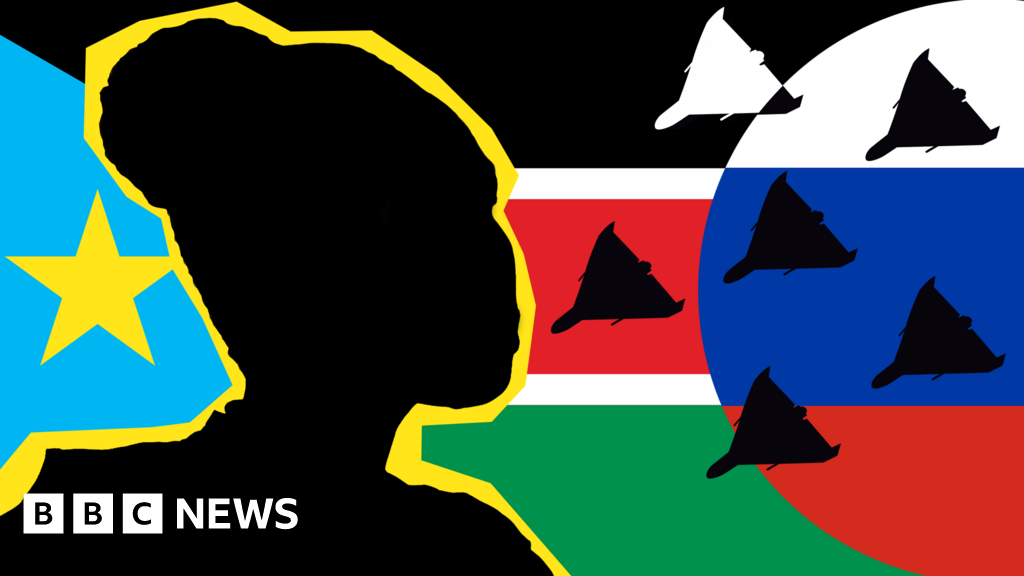'My skin was peeling' - the African women tricked into making Russian drones

```html African Women Tricked into Building Russian Drones: A BBC Africa Investigation
Young African women are being lured to Russia with promises of professional training and well-paid jobs, only to find themselves working in factories manufacturing drones used in the war in Ukraine, a BBC Africa investigation has found. The Alabuga Start programme, which targets women aged 18-22, primarily from Africa but also increasingly from Latin America and South-East Asia, is accused of using deceptive recruitment practices and subjecting recruits to dangerous working conditions for significantly less pay than advertised.
The revelations come amid growing international scrutiny of Russia's efforts to circumvent sanctions and bolster its military capabilities. The South African government launched an investigation in August after concerns were raised about the programme and warned its citizens against signing up.
False Promises and Harsh Realities
Adau, a 23-year-old from South Sudan, shared her experience with the BBC, requesting anonymity for her safety. She recounts being recruited through an advertisement promising training in fields like logistics and tower-crane operation. However, upon arrival at the Alabuga Special Economic Zone in the Republic of Tatarstan, she was immediately assigned to a drone factory.
"We all had a lot of questions," Adau explained. "We had all signed up to work in technical fields...but we all ended up working in the drone factory." The workers were required to sign non-disclosure agreements, preventing them from discussing their work even with family.
Dangers in the Drone Factory
Adau described hazardous working conditions, including exposure to chemicals that caused her skin to peel despite wearing protective gear. She also recounted a Ukrainian drone strike on the Alabuga Special Economic Zone in April 2024, which targeted a hostel where many of the African recruits lived.
"The drone struck down the hostel right next to ours. It completely shattered that building and our building was also damaged," she said, realizing later that the hostel was targeted because it housed workers involved in drone production.
Exploitation and Deception
Beyond the dangerous working conditions, Adau revealed that she was paid significantly less than the promised $600 (£450) per month. Deductions were made for rent, language classes, transport, taxes, and even minor infractions like skipping language homework or triggering the fire alarm.
Spencer Faragasso, a research analyst at the Institute For Science And International Security, who has interviewed other women recruited through the Alabuga Start programme, corroborates Adau's account. "On the surface, this is an amazing opportunity for many of these women to see the world, to gain work experience and to earn a living wage. But, in reality, when they're brought to Alabuga, they have a harsh awakening that these promises are not kept, and the reality of their work is far different from what they're promised."
Russia's Strategic Recruitment
The Alabuga Start programme's recruitment of African women highlights Russia's evolving strategies to address labor shortages and circumvent international sanctions related to its war in Ukraine. Dr. Samuel Ramani, a specialist in Russian foreign policy and a lecturer at the University of Oxford, argues that this recruitment drive is part of a broader trend. "Russia is increasingly looking to the Global South, particularly Africa and Latin America, for economic and political partnerships. This includes recruitment of labor, often under exploitative conditions, to support its war effort and domestic economy," Dr. Ramani explains.
He adds that the program allows Russia to portray itself as a benefactor offering opportunities to young people from developing countries, while simultaneously addressing its own labor needs and contributing to its military production.
Alabuga's Response
The Alabuga Special Economic Zone denies using deception to recruit workers, stating that all fields in which participants work are listed on their website. They also claim that all staff are provided with the necessary protective clothing and that salaries depend on performance and workplace behavior.
However, Adau's experience and the accounts of other recruits paint a different picture, raising serious concerns about the ethical implications of the Alabuga Start programme and the exploitation of vulnerable young women.
Broader Implications for Africa
The Alabuga Start scandal underscores the need for greater vigilance and transparency in international recruitment programmes targeting African youth. Governments and civil society organizations must work together to ensure that young people are fully informed about the potential risks and realities of such opportunities.
Adau, who has since returned home, hopes her story will serve as a warning to others. "It felt horrible having a hand in constructing something that is taking so many lives," she said, emphasizing the importance of understanding the true nature of such opportunities before accepting them. ```
Originally sourced from: BBC News Africa
